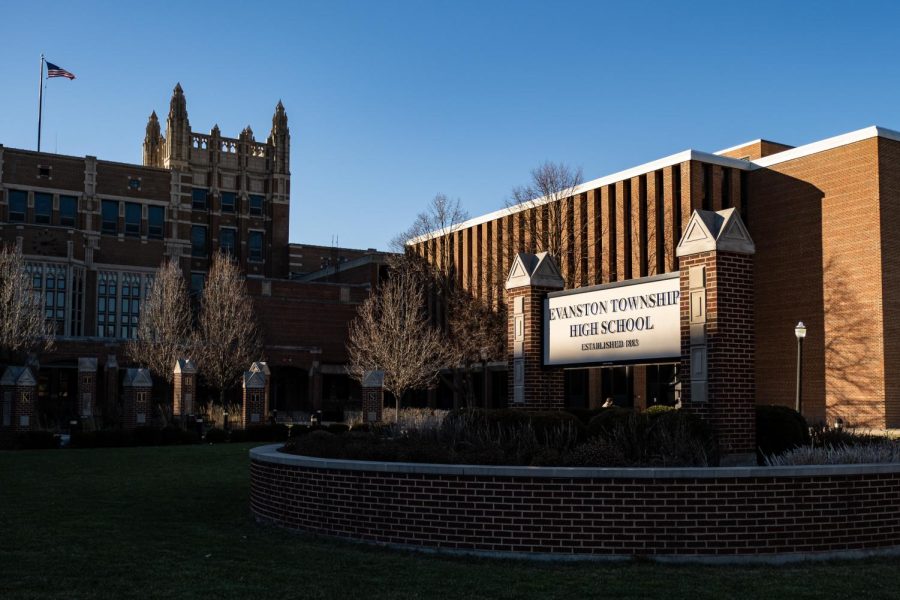District 202 Board of Education discusses revising racial equity, student well-being goals
Daily file photo by Seeger Gray
The District 202 Board of Education heavily discussed the first two of its four goals in its revision plan: prioritizing equitable education and student well-being.
April 19, 2023
The Evanston Township High School District 202 Board of Education is currently revising its districtwide goals. On Monday, the board reviewed community feedback on these new goals while the dean’s office discussed their focus on restorative practices in discipline.
D202 proposed four goals: prioritizing equitable education, student emotional-social wellness, fiscal responsibility, and community engagement and partnership. The board sought feedback from community members and teachers in several listening sessions which began in fall 2022.
During Monday’s meeting, the board primarily focused on equitable education and student emotional-social wellness goals.
District 202 Board President Pat Savage-Williams said achieving the goals in order is important, since the district wants to ensure racial equity is at the forefront of its work.
The district’s first goal states D202 aims to improve students’ academic trajectory, recognizing that racism is the most “devastating factor” contributing to diminished achievements.
Savage-Williams said that during many of the community feedback meetings, the public appreciated the district’s holistic view of equity.
She said some respondents were concerned the district focused too much on race instead of “good teaching”. But, several board members, including Savage-Williams, explained that student academic performance data shows racial disparities in education and student achievement.
“When we track our students of color, every time we do an achievement report we see the Black and brown students are at the lowest,” Savage-Williams said. “But when we bring (those students) up, all students go up.”
Board member Monique Parsons said the district should challenge itself to be bold, prioritizing an equitable education and avoiding weak language like “strive to” in its wording. Superintendent Marcus Campbell added that the district needs to revise its equitable statement, which was authored in 2012.
On student emotional-social wellness, board member Patricia Maunsell said a “sense of belonging” is now recognized as necessary to that wellbeing.
The goal states ETHS will provide each student with support to ensure social-emotional development and growth.
Maunsell said violence and gun presence among young people are symptoms of a deeper-rooted issue ETHS needs to focus on solving.
“Let’s dig into the root causes,” Maunsell said. “Let’s not keep putting Band-Aids on the surface of the problem.”
To help solve that, Parsons would like to see student voices included in improving students’ social-emotional development.
At the end of the meeting, the board said it would incorporate feedback from board members and community members to revise the goals.
ETHS class deans, a group of administrators tasked with following student wellbeing, presented the 2021-2022 academic year student discipline report Monday. They said they aim to close the gap of discipline by race.
ETHS faculty disproportionately issued discipline referrals to Black students during the previous academic year, although the number of overall referrals decreased for all students.
Sophomore class dean Pedro Soriano said the dean’s office wants to focus on restorative practices with help from a restorative justice coordinator next year.
Parsons also said ETHS must look beyond the statistics to find the root of the issue.
“I don’t want our Black boys being suspended at a record rate,” Parsons said. “I get the decline — there is still a gap, and they are still at the top which means there’s still an issue of them not belonging.”
Email: shannontyler2025@u.northwestern.edu
Twitter: @shannonmtyler
Related Stories:
— District 202 Board of Education gives orientation to candidates as the April elections approach
— D202 board discusses school community mental well-being supports and strategies
— Survey results reveal most ETHS students have little interaction with SROs



